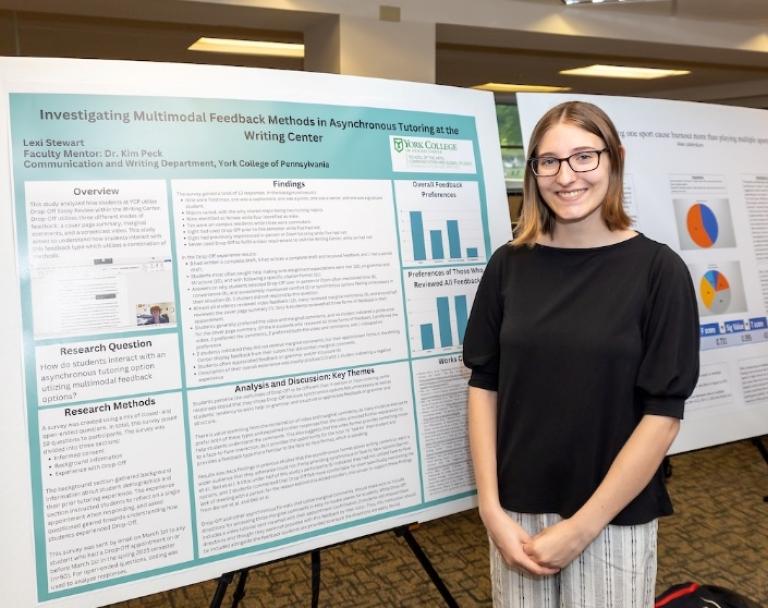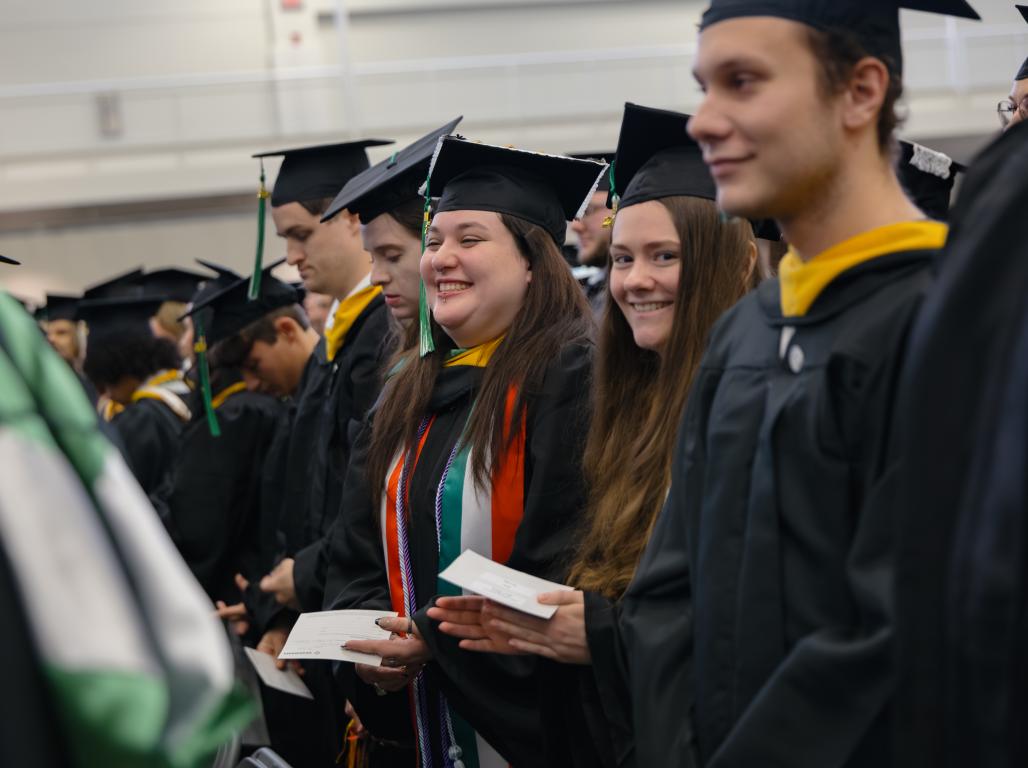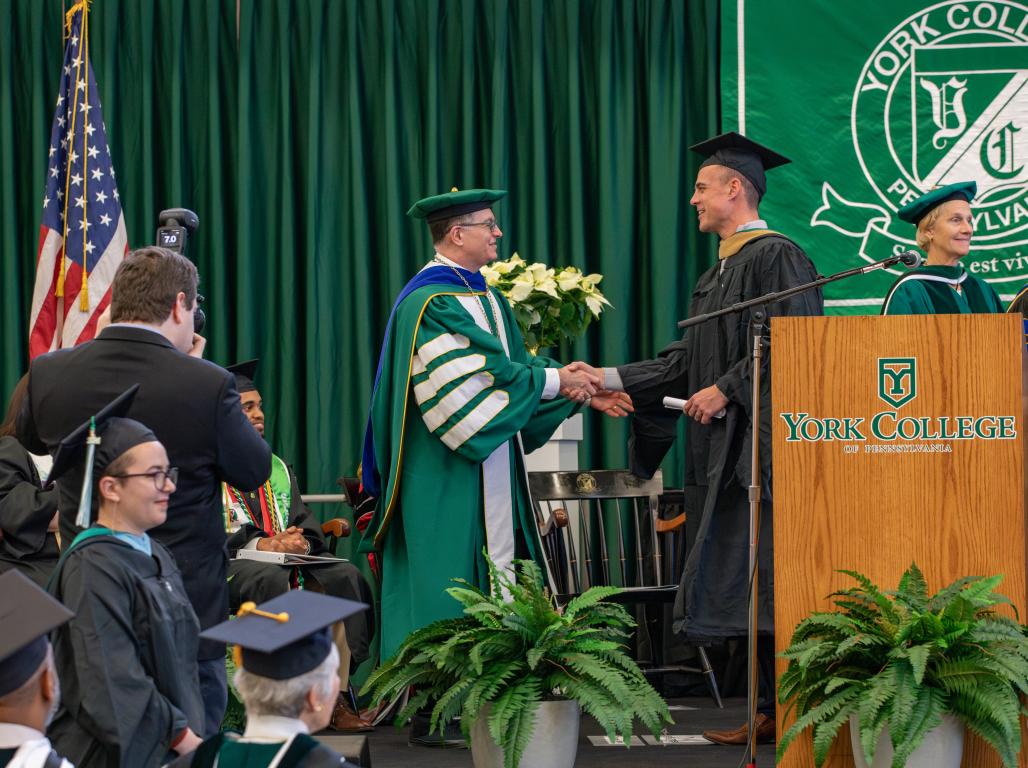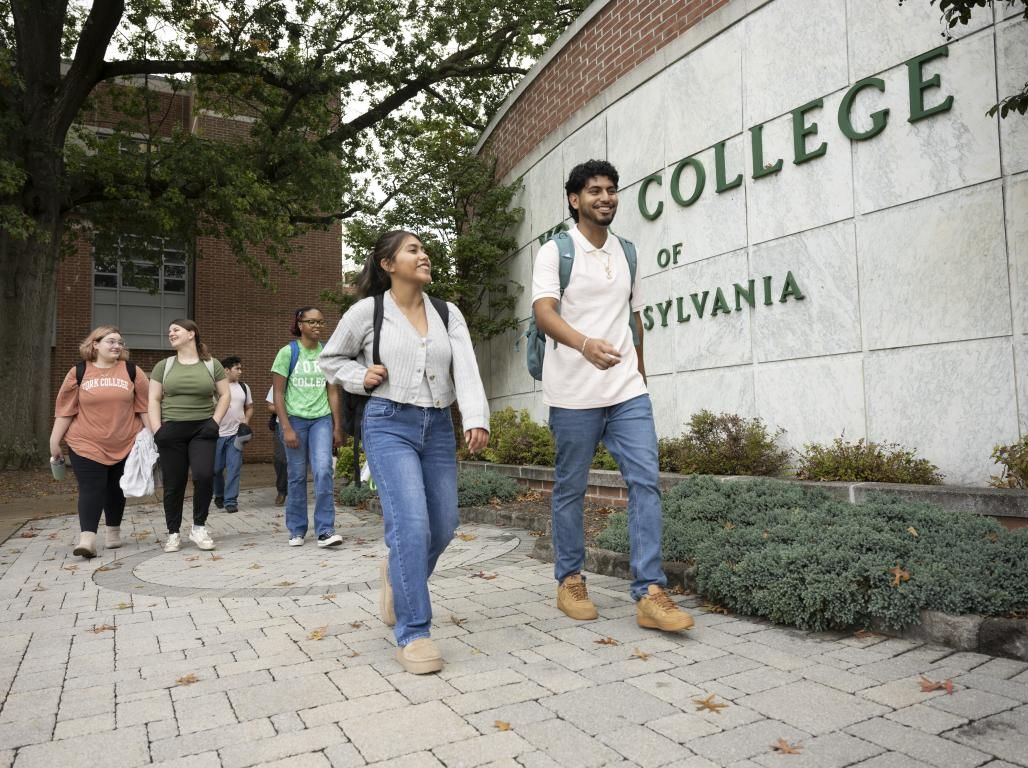At York College, students aren’t just reading textbooks and listening to lectures. They’re working on community projects, solving real-world problems, and using their education to effect change. In Designed for Action, we meet the students who are making an impact outside of the classroom.
During her sophomore year of college, Professional Writing major Lexi Stewart ’23 was a brand-new tutor to the Writing and Communication Studio. As part of their responsibilities for an appointment, writing tutors were required to create a screencast video providing and explaining their feedback. Stewart noticed that, by the end of the semester, most students did not interact with the video or open it at all.
“Most students didn't even open the video—I think only two or three students total had, and one of them only did for around five seconds before closing it—and that got me wondering if there was anything we could do to encourage students to utilize all the feedback options, since they were missing valuable feedback by skipping the video,” she explains.
Stewart noticed that prior research investigated one type of feedback versus another (i.e., written versus audio feedback), but not multiple types of feedback used in conjunction with one another, and was typically conducted in a classroom environment rather than a tutoring one. That observation evolved into a research project focused on how multimodal feedback impacts the student experience with the Writing and Communication Studio.
Stewart completed her project during the spring of 2023 for Senior Seminar, the capstone course required for all Professional Writing majors. During Senior Seminar, students lead their own research project from start to finish in 14 weeks.
“It was a lot of work, but I really value the experience and findings that came with it,” she said.
The project
Although the initial idea came about during the fall of 2020, Stewart didn’t start working on her project until her junior year when she took Research Methods, the prerequisite course for Senior Seminar. In Research Methods, students plan a study that will continue into their senior year, when they take their capstone course. In addition to taking Research Methods, and before she took Senior Seminar, Stewart attended the College’s Naylor Workshop on Undergraduate Research in Writing Studies to further develop her project.
“In this workshop is where my goal shifted from making students use the video to understanding how students approach and utilize Drop-Off,” she says.
Her choice to focus on multimodality was a result of attending the Online Writing Center Association 2023 Conference. The theme this year was multimodality, and Dr. Kim Peck, Director of the Academic Success Center, suggested she take part in the Conference, as Stewart’s project utilized a combination of written and video feedback.
“Dr. Kim Peck, who was my supervisor in the Writing and Communication Studio and was just as interested in knowing the results in my upcoming study, helped me a lot in my project and suggested that I take part due to the fact that Drop-Off is multimodal from the combination of written and video feedback,” she explains. “From preparing my research for this conference, my frame shifted from investigating how students interact with Drop-Off generally to specifically seeing how the multimodality impacted student experiences with the tutoring method.”
To investigate this, Stewart sent out a survey between March 1 and March 17 to current York College students. She asked them about their experiences using the Drop-Off Essay Review service provided by the Writing and Communication Studio.
“I generally found that students perceive the use of asynchronous tutoring options like Drop-Off to be different from synchronous options, [and they] valued a combination of video and written feedback due to how the two feedback types allowed them to better understand tutor feedback. [I then] found a way to revise Drop-Off to provide clearer instructions for viewing marginal comments,” she says. “This proved to be an issue in a few students' experiences, which we previously did not know as instructions for viewing these comments were not included with the student's feedback.”
Support and future plans
In addition to the support she received from the Research Methods and Senior Seminar courses, Stewart also cites the Teaching and Tutoring Writing course in playing a large part in her success.
“Research Methods obviously played a great role in helping me know how to conduct a research project in the first place; I wouldn't have been familiar with informed consent and creating recruitment materials had it not been for that class,” she says. “The Teaching and Tutoring Writing course I took also certainly played into this project. A lot of terms I learned within that class tied into this project, since it focused on writing tutoring.”
She also credits Dr. Peck with helping her through her research.
“I worked with Dr. Peck on this project as my faculty mentor. Dr. Peck was absolutely amazing; we met regularly and she provided great guidance throughout the project, as well as helped point me toward some helpful research,” she adds. “This project would not have been nearly as successful had I not been working with her.”
Stewart, who graduated in May 2023 and wants to go into the technical writing field, will continue to work on the paper from her project with the hopes of publishing it.





